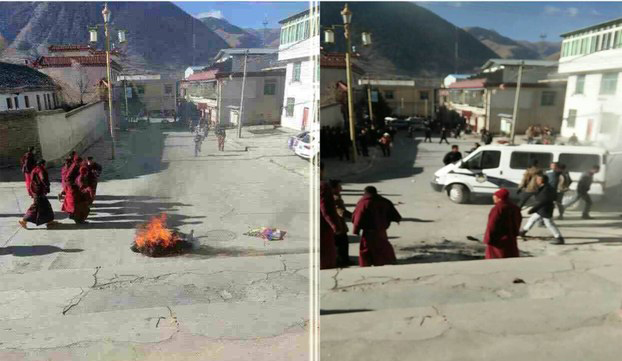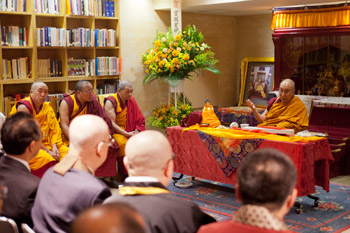Facebook Deletes Post on Tibetan Monk’s Self-Immolation
Austin Ramzy, The New York Times | December 27, 2014
A prominent Tibetan writer says Facebook deleted her post on the self-immolation of a monk in Sichuan Province, raising concerns about politically motivated censorship.
Tsering Woeser, who has written several books about Tibet and is a critic of Chinese policies in the region, said she posted a short item about Kalsang Yeshi, a 37-year-old monk who set himself on fire in front of a police station on Dec. 23 in Dawu County, part of the Kardze Tibetan Autonomous Prefecture in northwestern Sichuan.
Ms. Woeser’s post included a link to a video about Kalsang Yeshi’s death. A message from Facebook on Friday said the post had been deleted because it “didn’t meet Facebook’s community standards,” without offering specifics.
Facebook provided this statement Sunday on the removal of the post:
Facebook has long been a place where people share things and experiences. Sometimes, those experiences involve violence and graphic videos. We work hard to balance expression and safety. However, since some people object to graphic videos, we are working to give people additional control over the content they see. This may include warning them in advance that the image they are about to see contains graphic content. We do not currently have these tools available and as a result we have removed this content.
Self-immolations by Tibetans, who generally describe the act as a protest against restrictions on religious and cultural freedoms in Chinese areas of Tibet, surged in 2011 and 2012. The rate has tailed off in recent years, but rights groups say that in the past two weeks, three people have died after lighting themselves on fire in Tibetan areas of China. The International Campaign for Tibet, a rights group, says 136 Tibetans have self-immolated since Feb. 27, 2009.
Ms. Woeser, who is based in Beijing, said she believed the post may have been deleted because of the disturbing nature of the self-immolation, or because of efforts to sanitize material that might be critical of the Chinese authorities. She joined Facebook in 2008 and has posted extensively about self-immolations, but says this was the first time the company had removed her content.
“I was really surprised. I couldn’t believe my eyes,” she said of her reaction to the deletion notice. “I thought, ‘How is it that this has become like a Chinese website?’ ”
Mark Zuckerberg, Facebook’s chief executive, has expressed an interest in expanding the company’s presence in China, where its site is blocked. In October he held a question-and-answer session at Tsinghua University in Beijing using Mandarin, which he has been studying. And earlier this month, Lu Wei, China’s top Internet regulator, visited Facebook’s offices in Menlo Park, Calif., and was photographed grinning as he sat at Mr. Zuckerberg’s desk, where a book by President Xi Jinping of China was prominently placed.



